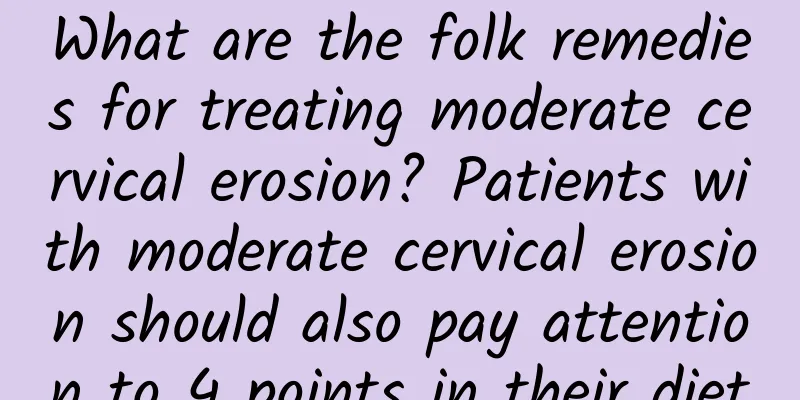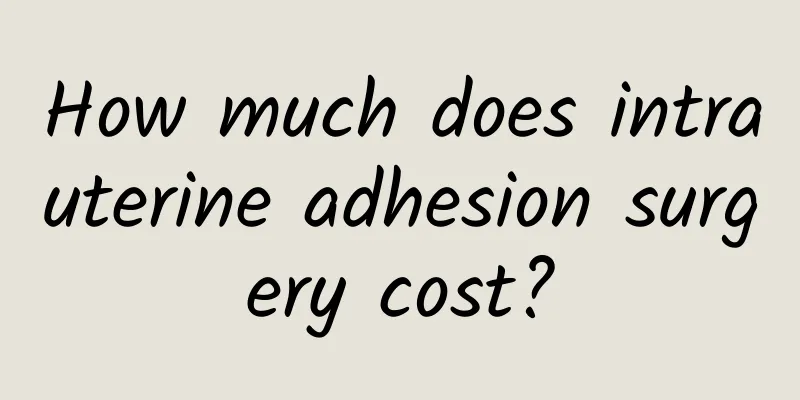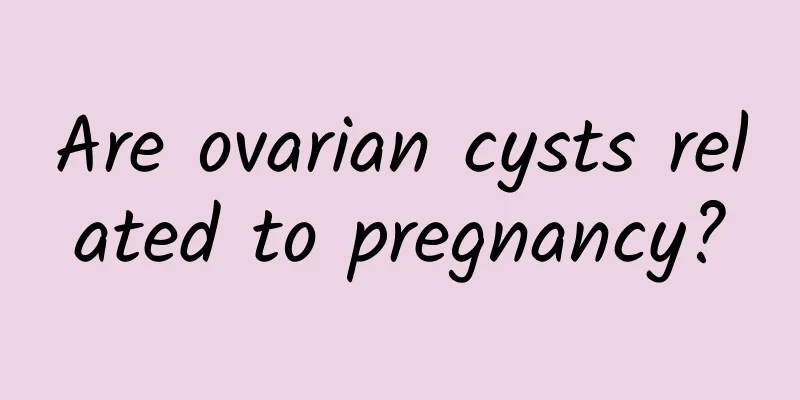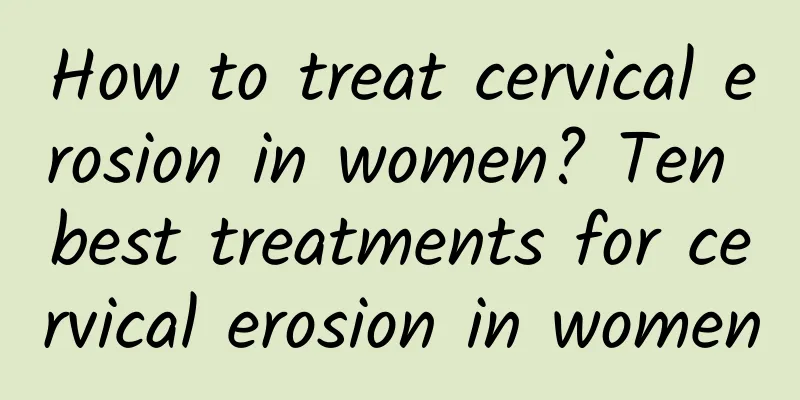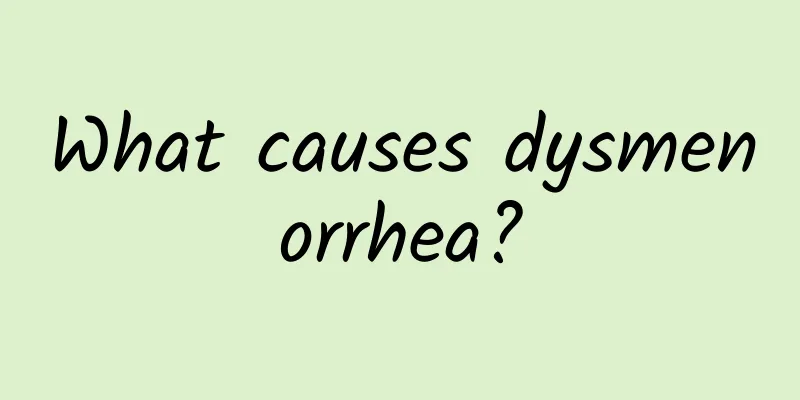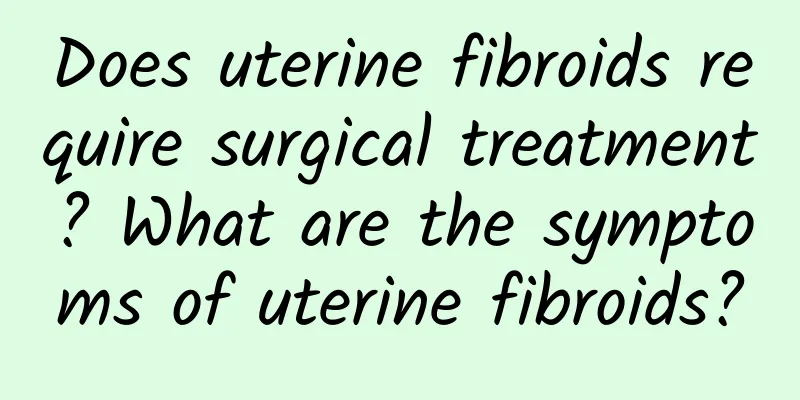Can uterine cysts be eliminated by taking medicine? Will they recur?
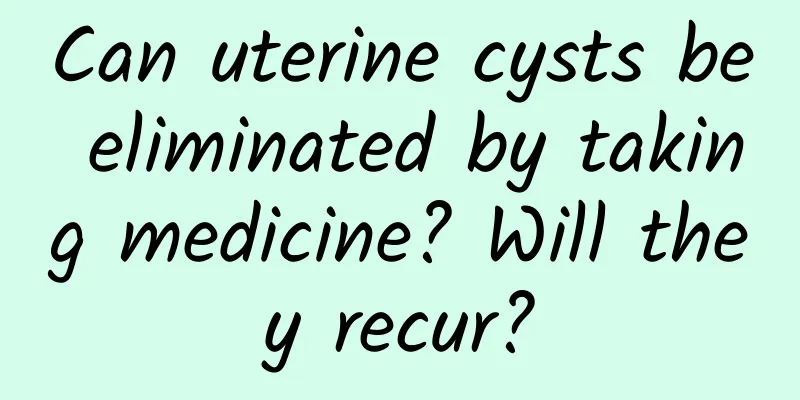
|
Uterine cysts can be eliminated with medication in some cases, but the effectiveness depends on the type and size of the cyst, and there may be a risk of recurrence. Treatment options include medication, surgery, and lifestyle adjustments, depending on the condition. 1 Types and causes of uterine cysts Uterine cysts mainly include functional cysts such as corpus luteum cysts and pathological cysts such as cysts caused by endometriosis or inflammatory cysts. Functional cysts are mostly caused by hormone disorders and may disappear on their own during the menstrual cycle. Pathological cysts may be caused by chronic inflammation, endocrine disorders, genetic factors, etc., and are relatively difficult to eliminate. In either case, going to the hospital in time to clarify the nature of the cyst is the first step. 2 Is drug treatment effective? Functional cysts can be treated with oral contraceptives or other hormone drugs under the guidance of a doctor to regulate endocrine, thereby helping the cysts to shrink or even disappear. For cysts related to inflammation, antibiotic treatment may have a certain relief effect. However, pathological cysts such as chocolate cysts usually need to be combined with other treatments, and drug treatment alone is difficult to completely resolve. It should be noted that drug treatment has certain limitations, and long-term dependence may cause side effects, and regular check-ups are necessary. 3Surgery and other methods If the cyst is large or continues to grow, surgery may be considered to solve the problem. Common surgical procedures include: Laparoscopic minimally invasive surgery: suitable for small and medium-sized cysts, with less trauma and faster recovery. Laparotomy: Suitable for larger or complex cysts and for situations with a higher risk of malignancy. Hysteroscopic surgery: It is more effective for intrauterine cysts such as those caused by endometrial polyps. After surgical removal of the cyst, further medication adjustment and regular ultrasound examinations are generally required to reduce the possibility of recurrence. 4 Ways to Prevent Relapse In daily life, pay attention to regulating endocrine, avoid excessive fatigue and mental stress, and pay attention to the balance of diet and work and rest. Reducing the intake of high-fat foods and eating more fruits and vegetables rich in vitamins will help stabilize endocrine. In addition, regular gynecological examinations are an effective way to prevent the recurrence of cysts. The treatment effect of uterine cysts is closely related to their nature and severity. Drug treatment alone has limited effect, and a personalized plan needs to be selected after comprehensive evaluation. When a uterine cyst is found, you should seek medical attention in time and receive systematic treatment according to the doctor's advice. At the same time, do a good job of follow-up maintenance and reexamination to reduce the possibility of recurrence. |
<<: I want to know if there is cervical erosion and what tests should be done
>>: Is uterine cyst serious? Is there any danger? Will it get worse?
Recommend
Understand the examination methods for cervicitis and pay attention to the correct examination channels
If you want to correctly understand cervicitis, y...
What are the causes of abdominal pain after abortion?
Some women experience abdominal pain after underg...
What are the treatments for uterine fibroids in women?
What are the treatments for uterine fibroids in w...
Rumor online: Eating leftover food can cause cancer? Rinse and cook in this way, health will not be lost
Studies have confirmed that "eating overnigh...
Will a fast heartbeat shorten your life? Stay away from the 6 major NG behaviors
I heard that having a fast heartbeat can shorten ...
What are the main symptoms of cervicitis in women
The main symptoms of cervicitis include increased...
What is the diagnosis basis for congenital absence of vagina?
We need to actively grasp the basis for the diffe...
What medicine should women take to treat chronic cervicitis? This kind of medicine is effective in treating chronic cervicitis
Chronic cervicitis can be treated with anti-cervi...
How to learn to prevent vulvar leukoplakia?
The appearance of vulvar leukoplakia causes certa...
Can cervical erosion cause frequent urination?
Cervical erosion is not a disease. The common cer...
Do you have to sweat profusely to lose weight? Doctor Song Yanren: Niya dance can help you lose weight easily
There is no shortcut to losing weight, but you ca...
What is the reason why candidal vaginitis enters the patient's life?
Nowadays, many women are suffering from vaginitis...
Morphological and structural characteristics of uterine fibroids
Uterine fibroids are the most common benign tumor...
Specific identification of early symptoms of vaginitis
Now many patients have missed the best time to tr...
What are the early signs of menopause in women?
Generally, after the age of 30, women’s ovarian f...


